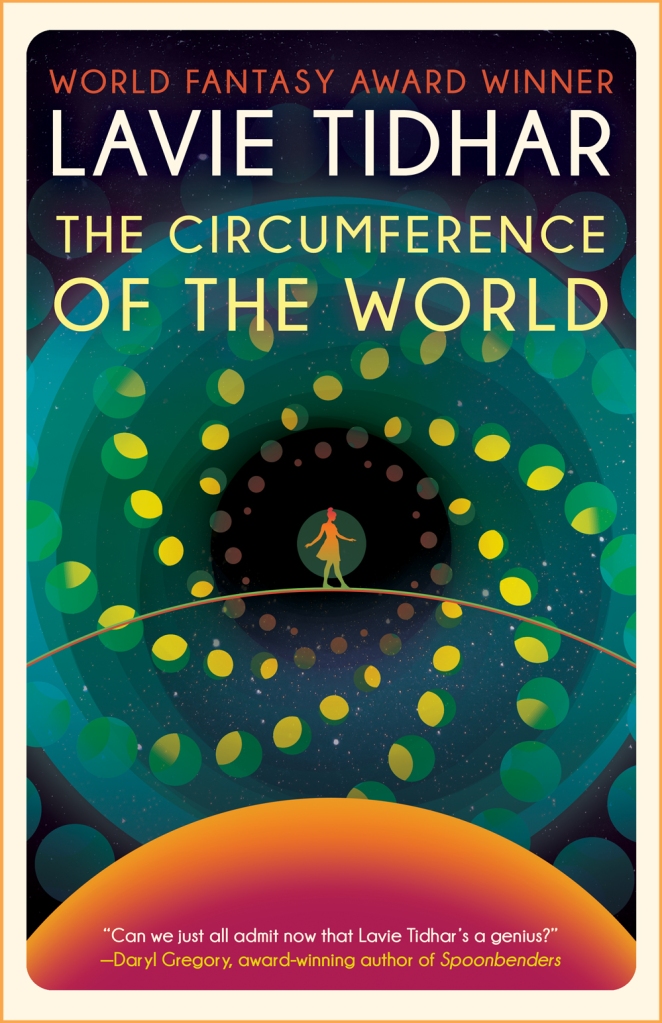
Levi dreamed of making sense of the world. There were men–they were always men–who dreamed of understanding God.
from Circumference of the World by Lavie Tidhar
If you love a novel of ideas, and are a fan of Mid-Century pulp science fiction, and are up for unconventional story telling, this inventive novel will knock your socks off.
An albino woman from a Pacific island is losing her husband to his obsession over a book, a book that can’t be found but is rumored to hold the answer to life’s biggest questions about the nature of reality.
The book is The Lode Star, written by Eugene Hartley, a pulp fiction sci-fi writer who turned his ideas into a religion. The book is about a woman named Delia who crosses the universe to find her missing father. Hartley believed that all of what we call real and reality are only reconstructed memories from matter swirling inside a black hole through which the eyes of God watches us.
It’s a story, everything is a story. Without stories we can’t really be human.
from Circumference of the World by Lavie Tidhar
Tidhar was inspired by golden age sci-fi writers and draws from esoteric scientific theories. This wildly inventive novel is quite a trip! From Delia’s early life on a South Seas island to searching for her missing husband, to the fictional Delia’s otherworldly journey, the novel proves again the power of story.
Thanks to the publisher for a free book.
The Circumference of the World
by Lavie Tidhar
Pub Date September 5, 2023
Tachyon Publications
ISBN: 9781616963620
from the publisher
Caught between realities, a mathematician, a book dealer, and a mobster desperately seek a notorious book that disappears upon being read. Only the author, a rakish sci-fi writer, knows whether his popular novel is truthful or a hoax. In a story that is cosmic, inventive, and sly, multi-award-winning author Lavie Tidhar (Central Station) travels from the emergence of life to the very ends of the universe.
Delia Welegtabit discovered two things during her childhood on a South Pacific island: her love for mathematics and a novel that isn’t supposed to exist. But the elusive book proves unexpectedly dangerous, attracting the attention of Oskar Lens, a Russian mobster in the midst of an existential crisis. When Delia’s husband goes missing, she seeks help from Daniel Chase, a young, face-blind book dealer.
Lode Stars was written by the infamous Eugene Hartley, legendary pulp science-fiction writer and founder of the Church of the All-Seeing Eyes. In Hartley’s novel, a doppelganger of Delia searches for her missing father in a strange star.
But is any of Lode Stars real? Was Hartley a cynical conman on a quest for wealth and immortality, creating a religion he did not believe in? Or was he a visionary who truly discovered the secrets of the universe?


